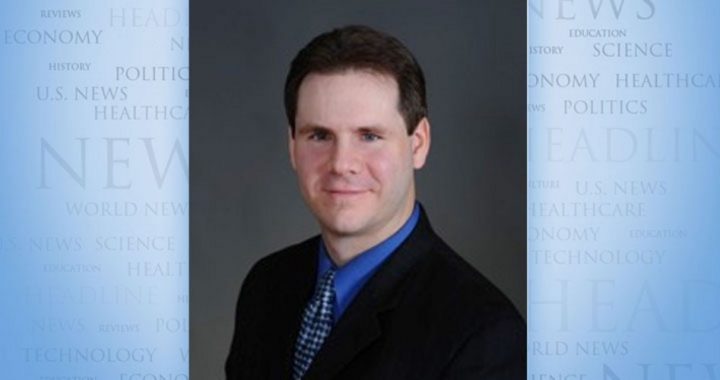
As with George Washington before him, new House Speaker Mike Johnson could be seen not long ago on bended knee, in his case on the House floor, praying for divine guidance. It reflects a dedication to and openness about his faith that has attracted much, and varied, attention. The New York Times wrote late last month that Johnson has “aligned himself with a newer cohort of conservative Christianity that some describe as Christian nationalism,” while a more recent American Thinker title states that the speaker’s faith “Calls Us to Greater Integrity.” It’s a pseudo-elite-vs.-street dichotomy that’s predictable today: The quintessential establishment outlet the Times carries the secularist banner while the revolutionary media supports a faith whose deposit of Truth is (when considered in its entirety), in most every time and place, revolutionary.
But what is the Truth? Should Johnson’s Christianity be feared or revered, suppressed or buttressed, flouted or touted?
Perhaps this matter can be made clear by understanding a simple truth, one most shocking to moderns’ ears: All just law has a basis in what we call “religion” (more on this later).
One man who’s sure where he stands on the above question is the author of the aforementioned American Thinker piece, E. Jeffrey Ludwig. After citing Johnson’s references to Scripture, he says that the speaker “has a vision of governance motivated by four goals.” He then elaborates:
First, there must be a kind of spiritual renaissance, whereby the country acknowledges again its closeness as a socio-political economic entity to Almighty God himself. Second, we must acknowledge that even though the Soviet Union collapsed, our opposition to atheistic communism must continue unabated…. Third, we must understand that morality did not begin and end with our laws, but follows from the reality that the world we live in, and the very idea of there being different countries, comes from God. If we look at the story of the Tower of Babel in the Bible, we see that the globalist ideals of the tower-builders were pure folly, and that the world was purposely divided into different language groups, people groups, tribes, and nations.
Further, our legal system, as was recognized by William Blackstone, the father of modern law, originated not with our Constitution, but in natural law, which was revealed by biblical values going back to ancient biblical covenants, including the Ten Commandments….
Fourth, with great and godly sensitivity, Speaker Johnson quoted Romans to remind the press and the population that government does not exist to project burdens and fear.
Much can be said about faith’s effects on society. Yet I’d like to expand upon the third goal above, which relates to what I mentioned earlier: Just law’s basis in what we call religion. After all, enacting law is serious business. It amounts to limiting people’s freedom through government coercion; thus, we’d better get it right.
In reality, you don’t have to believe in the Bible to understand the law-religion connection — you merely have to apply reason.
First consider that any law, by definition, is the imposition of a value. Laws against murder reflect the value that innocent human life should be protected. Laws prohibiting theft could reflect the value that it’s “wrong” to steal others’ goods or that it’s disruptive to society, and this is bad. Under a tyranny, laws against dissent could reflect the value that total state power and control should be maintained. Evident here is that “values” are not by definition good; they’re simply things some people happen to value. A serial killer may value visiting pain upon others.
So a value, which any law reflects, can be synonymous with human preference, or taste, and taste can mean turpitude. A just law is what we want. But what constitutes one?
Merriam-Webster defines “just,” as it relates to the matter here, as “acting or being in conformity with what is morally upright or good.” All right, but what is “morality”? Well, consider an old explanation of mine:
Who or what determines what this thing we call morality is? Only two possibilities exist: Either man or something outside of him does. If the latter, something vastly superior and inerrant (i.e., God), then we really can say morality exists, apart from man. It’s real. Yet what are the man-as-measure implications?
Well, imagine the vast majority of the world loved chocolate but hated vanilla. Would this make vanilla “wrong” or “evil”; “moral” or “immoral”? It’s just a matter of preference, of whatever flavor works for you.
Okay, but is it any more logical saying murder is “bad” or “immoral” if we only do so because the vast majority of the world prefers we not kill others in a manner the vast majority considers “unjust”? If it’s all just consensus “opinion,” it then occupies the same category as flavors: preference.
Note that if the latter “relativist” notion were “reality,” we couldn’t have “just” law; we’d instead have “just law” (as in “only”).
So to sum up: For a law to be just, it must conform to morality; for morality, properly understood, to exist, it must come from God. Translated, this means a just law must conform to God’s dictates — and divine dictates are the business of what we call “religion.”
Ergo, all just law has a basis in religion.
None of this implies that every aspect of morality should be legislated, only that anything legislated must reflect morality. The only alternative is having it reflect immorality.
And losing sight of this and proclaiming “You can’t legislate morality!” helps bring us to the state we’re in today, where that alternative is reality.



